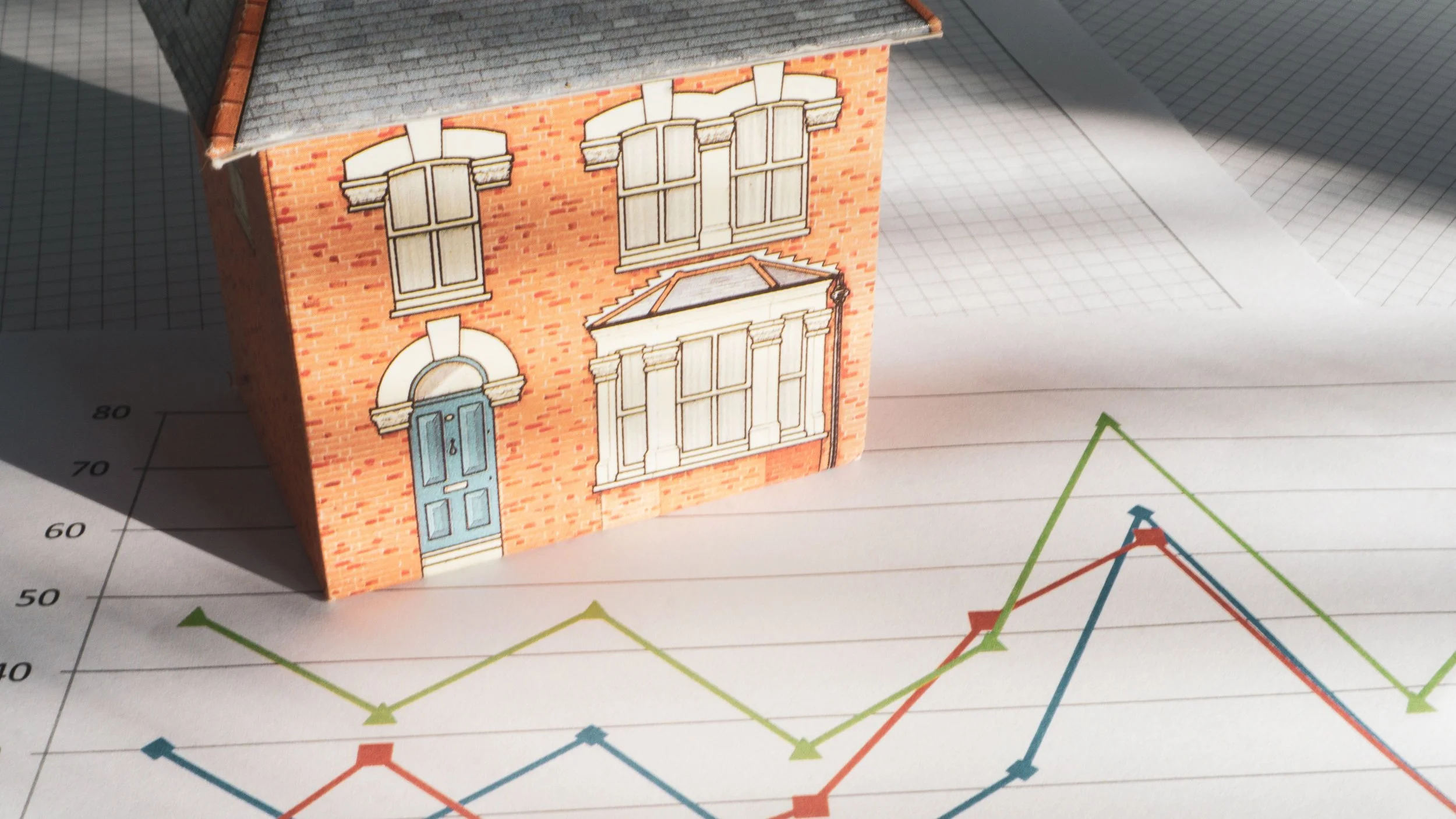🏡 Should You Buy Before You Sell? The Halifax Homeowner’s Dilemma
If you already own a home in Halifax and you’re itching for a change: more space, a better view, or that dream kitchen, you’ve likely asked yourself the big question:
Should I buy my next home before I sell this one?
It’s a classic homeowner dilemma, and in Halifax’s ever-evolving real estate market, the answer is rarely black and white.
In this post, we’re diving deep into the pros, cons, and key considerations that will help you make the best decision for your move.
📈 Halifax Real Estate in 2025: The Context Matters
Before we jump into the debate, it’s important to understand what’s happening in our local market right now.
As of mid-2025:
Inventory has been gradually increasing
Prices are starting to stabilize after several years of growth
Condos are lingering a bit longer on the market
Buyer demand is still strong, but it’s not the frenzy we saw in 2021–2022
What does this mean? Halifax is in a transitional market, shifting away from the extreme seller’s market of the past few years, and leaning slightly toward balance. Timing matters more than ever, and so does strategy.
🧭 The Big Question: Should You Buy Before You Sell?
Let’s break it down by looking at both sides of the decision.
✅ The Case for Buying First
1. You’ll Know Exactly Where You’re Going
This is the biggest emotional and logistical win of buying first.
You’ll have peace of mind knowing:
You’re not rushing into a home you don’t love
You can wait for the right property to hit the market
You won’t be stuck scrambling to find something temporary
Example:
A family in Bedford sells their home, thinking they’ll quickly find a new one in the same school district. After weeks of searching and losing out on offers, they’re forced into a short-term rental, and a longer commute.
Buying first can help you avoid this kind of stress.
2. You Can Move on Your Timeline
When you already own your next home, you control the pace.
You can:
Stage and show your current home while it’s empty
Take your time moving
Avoid the hassle of storing your belongings
This can lead to a smoother experience and potentially a better sale price, since your home will show better without boxes piled in the corner.
3. You Can Be Strategic with the Sale
Without pressure to sell fast, you might:
Wait for the right season or market conditions
Be firm on price
Avoid taking the first lowball offer that comes through
In a cooler market, this flexibility can be incredibly valuable.
🚨 The Risks of Buying Before Selling
Of course, there’s a flip side. Buying first comes with financial and emotional challenges, especially if your current home doesn’t sell as quickly as you hoped.
1. You Might Carry Two Mortgages
This is the big one. If your home doesn’t sell right away, you could be on the hook for:
Two mortgage payments
Two sets of property taxes
Two sets of utility bills
Even if you can technically qualify, this can be a huge financial strain, and risky if the market slows.
2. Conditional Offers May Be Less Competitive
Let’s say you find your dream home and want to write an offer conditional on the sale of your current home. In a competitive market, sellers may pass you over in favour of unconditional buyers.
Even in a balanced market, a sale-of-home condition can weaken your negotiating power.
3. Pressure Can Creep In
If your home doesn’t sell quickly, panic can set in. You might be tempted to:
Drop your price too low
Accept less-than-ideal terms
Make emotional decisions to relieve the financial burden
None of these are ideal when you’re making such a big life move.
📝 What Is a “Sale of Buyer’s Property” (SOBP) Condition?
If you're leaning toward buying first but don’t want the financial burden of carrying two homes, you might wonder: Is there a way to protect myself in case my current home doesn’t sell in time?
The answer in Nova Scotia is yes—through something called a Sale of Buyer’s Property (SOBP) condition, also known as Form 430A.
🧾 What Is Form 430A?
Form 430A is an official real estate schedule used in Nova Scotia when a buyer wants to purchase a new home on the condition that they sell their current one. It’s typically added to the Agreement of Purchase and Sale (APS).
This condition gives you time to:
List your current home
Secure an accepted offer
Satisfy the conditions on that sale (except title)
Before finalizing the purchase of your new home
If you don’t sell by the agreed deadline, the deal becomes null and void, and your deposit is returned (with appropriate documentation like Form 440).
🧨 The Escape Clause (Form 430B)
To keep things fair, the seller can still market their property while you work on selling yours. If they get another offer, they can trigger what’s known as the escape clause—and give you notice via Form 430B.
You’ll have a short window (usually 24–72 hours) to make a decision:
Proceed unconditionally (remove the SOBP and commit to buying regardless)
Walk away from the deal and recover your deposit
That window doesn’t include the hours between midnight and 8 a.m., so if notice comes late in the day, you’ll still have some breathing room.
🤔 When Should You Use a SOBP Condition?
An SOBP condition can be a powerful tool when:
You’ve found the right home but haven’t sold your current one
You’re relying on the equity from your current property to finance your next move
You want a safety net that protects you from owning two homes at once
But there’s a catch—some sellers won’t accept an offer with a SOBP, especially in a competitive market. It adds uncertainty to the deal and opens the door for them to entertain other offers.
If you're thinking about using one, it’s important to:
Talk to your REALTOR® early about how it works
Understand the risks and timelines
Have a backup plan in case you're asked to firm up before you’re ready
🔁 The Case for Selling First
Let’s flip the script. Selling your home before buying your next one is a more conservative approach, and for many, it’s the safer financial play.
1. You’ll Know Your Exact Budget
No guesswork.
Once your home is sold, you’ll know:
Your net proceeds
Your exact purchase budget
What you can (and can’t) afford in your next home
This reduces financial stress and avoids the dreaded “oops, we overbought” moment.
2. Your Offer Will Be Stronger
Once your home is sold (and especially if it’s closed), your next offer won’t be conditional on anything. That makes you:
More attractive to sellers
More competitive in multiple-offer situations
More likely to negotiate better terms or price
This can make all the difference in a tight market.
3. Less Financial Risk
You’re not juggling two mortgages. You don’t have to float property taxes or insurance on an unsold home.
This keeps your stress levels and your monthly budget in check.
🏚️ But… What If You Can’t Find a Home?
This is the biggest fear when selling first: you sell, but nothing suitable is available to buy.
Here’s how to prepare:
Option 1: Ask for a Long Closing
In Halifax, many buyers are open to flexible closing dates. You might be able to negotiate a 60 to 90+ days to close.
This buys you time to find and secure your next place.
Option 2: Secure a Short-Term Rental
Not ideal, but it can work.
Renting short-term gives you flexibility to wait for the right listing, and avoids pressure to rush into a bad fit.
Tip: Some sellers even move in with family temporarily to save on costs and reduce pressure.
📊 What’s Right for You? Key Questions to Ask
There’s no one-size-fits-all answer. Here’s what to consider:
✅ Are You Financially Able to Carry Two Homes?
Talk to your mortgage broker. Some buyers can qualify to carry both mortgages for a few months, but that doesn’t always mean it’s comfortable.
✅ Are You Buying in a Hotter Market than You’re Selling?
Let’s say, for example, you’re selling a suburban condo but buying a South End home. These two markets have very different timelines.
✅ Can You Handle the Stress of the Unknown?
If uncertainty makes you lose sleep, selling first might give you more peace of mind.
✅ Is Your Current Home Likely to Sell Quickly?
If you have a highly desirable property, a great location, it’s well-priced, and/or move-in ready, it might sell fast enough to make buying first more reasonable.
🧮 Bridge Loans: A Tool for Buying First
If you're leaning toward buying before you sell, talk to your mortgage advisor about a bridge loan.
This short-term financing lets you use the equity in your current home toward your next purchase before it closes.
Pros:
Lets you buy without selling first
Keeps your transaction timelines flexible
Helps avoid selling in a panic
Cons:
Short-term interest rates apply
Usually limited to 90 days
You must have a firm sale agreement in place on your current home to qualify
If you have more questions about financing, reach out to your mortgage broker, or our trusted partner Neil Keeping with The Mortgage Group!
💡 Final Thoughts: What Should You Do?
Here’s the bottom line:
Buy first if…
You can afford it
You’ve found the perfect home
You’re confident your home will sell quickly
Sell first if…
You want certainty and security
You’re not in a rush to move
You need the sale proceeds to finance your next purchase
🔑 The Best Move? Get Expert Advice Early.
Whether you buy first or sell first, it’s crucial to have a trusted real estate professional, mortgage broker, and lawyer in your corner.
As a Halifax Real Estate Professionals who’ve guided dozens of clients through this exact dilemma, we can help you:
Assess your home’s marketability
Explore your financial options
Time your transactions for the smoothest transition possible
Thinking about making a move in 2025? Let’s chat.
We’ll walk through the pros and cons based on your unique situation and help you make the move with confidence.
📩 Reach out anytime for a personalized consultation.
Author: Jordan Gunn
Real Estate Assistant
Perkins Real Estate
Keller Williams Select Realty












